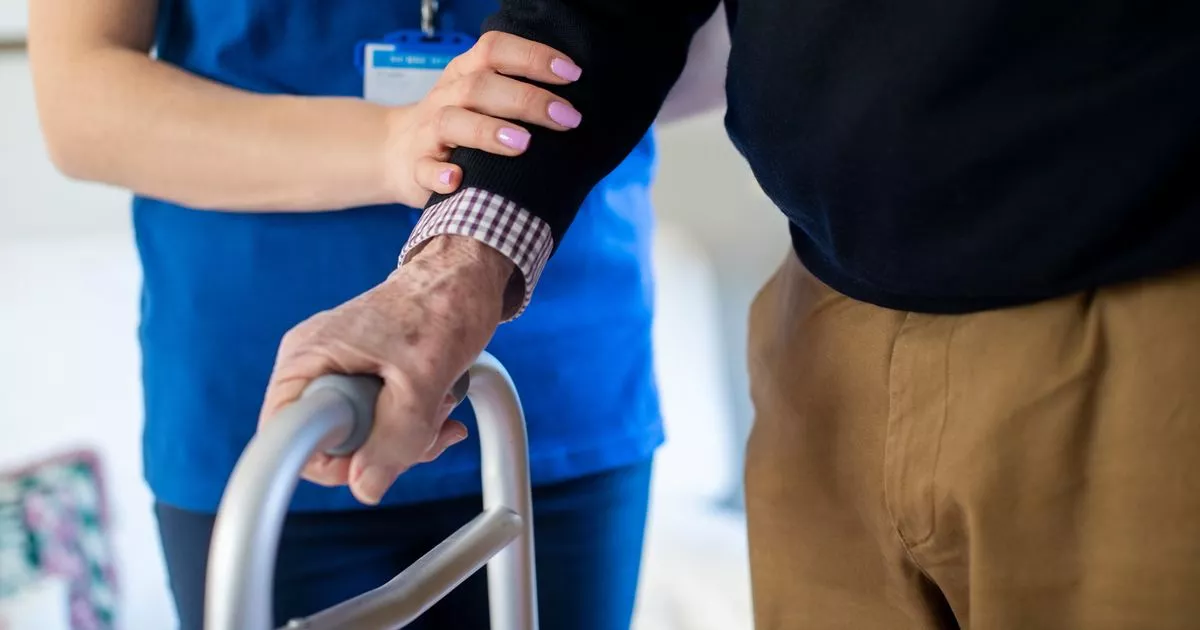Copyright glasgowlive

A decision on controversial plans to introduce new social care charges in East Renfrewshire is expected tomorrow (Wednesday). Plans to roll out means-tested £20 per hour fees for non-residential care — which includes activities like help with shopping or travel — were deferred until April next year in February. Councillors asked health and social care chiefs to return with an updated impact assessment on those who are being asked to pay. Their request came after over 1,000 people signed a petition calling for the proposals to be dropped. Angry parents and carers are concerned about the impact on the elderly and disabled. East Renfrewshire Council’s cabinet initially agreed to bring in the charges, with a 40% taper on the amount of a person’s disposable income which can be spent on the fees — despite officials recommending it was set at 60%. But that decision was called-in by the council’s SNP group. Councillors then chose to defer the roll out for further analysis of the impact. Now, officials are once again recommending a 60% taper, which is estimated to bring in between £1.5m and £1.6m. East Renfrewshire’s health and social care partnership (HSCP) is facing a potential £25m financial gap over the next four years, a report to councillors states. The new report adds 515 of 1,674 people currently receiving care from the HSCP would be eligible for the charges. Those with disposable income above a nationally set threshold would pay for care. Financial assessments would be carried out to determine how much chargeable income a person has. The taper is then applied to the chargeable income to calculate how much they pay. Only 15 assessments have been completed so far, but — based on an average weekly disposable income of £93.29 — a 60% taper would see those affected pay £55.97 per week. With a 40% taper, people could contribute £37.32 per week, which, if paid by 515 people, would bring in just over £1m per year. The 60% taper is proposed to meet “the £1.5m cost pressure identified in the HSCP and to provide scope for administrative costs”, the report states. The HSCP has said the move will help to “avoid more severe service reductions that could impact vulnerable residents”. The updated equalities assessment includes the views of people affected. Some believe the proposal is “unfair” as it “will disproportionately affect the learning disability community”. Residents also fear the proposal will put “even more pressure and stress” on carers and will “impact on the ability of families/carers to financially plan for the future of their loved ones”. Officials have reported the HSCP’s financial pressure for 2026/27 is estimated at £9.2m. They added anything less than £1.5m income from non-residential care charging will mean other options to “close that… pressure on a recurring basis” are needed. The report continues: “Given there are limited options and a short timescale, the immediate actions may have to include a freeze on any recruitment, a change to care criteria to support only those people with a critical level of need and at risk of harm only, a review of all grants provided and an urgent review of services delivered.” Back in February, Conservative councillors put forward a proposal to drop the proposed charges for the remainder of the council term, which runs until 2027. However, a council official said at the time that the cost of not implementing non-residential charging at all “would be £4.5m to the council over three financial years”. East Renfrewshire would be the last of six HSCPs in the Greater Glasgow and Clyde area to introduce charging for non-residential care. Since June, 66 of the 515 people affected have taken part in income maximisation work to ensure they are getting all benefits they’re entitled to. Of these, 30% had an increase in their benefit income, generating an average gain of £8,000 per year per household, the report to councillors states. Join Glasgow Live's WhatsApp community here and get the latest news sent straight to your messages



